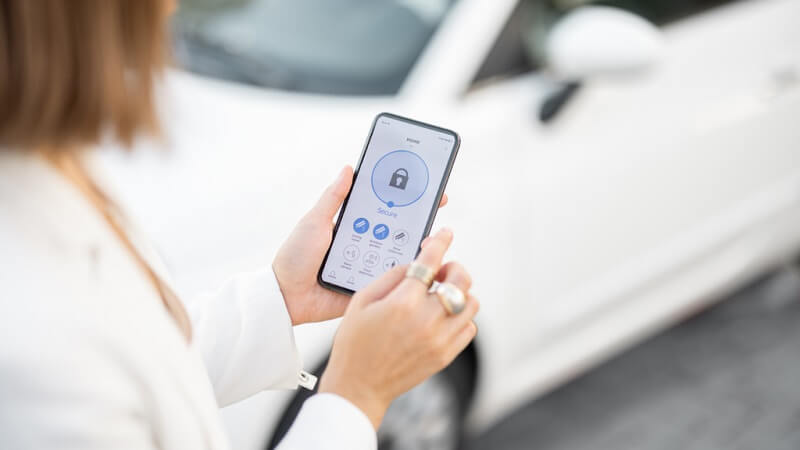
How Do I Secure My Mobile Phone is a question every user should be asking today. Your smartphone holds your entire digital life—banking details, personal photos, work emails, and sensitive conversations. Yet most people treat phone security like an afterthought, leaving their most valuable data completely exposed.
Think about it: you wouldn’t leave your house unlocked, so why leave your phone vulnerable to hackers and cyber threats? The reality is sobering. Unpatched flaws are involved in 60% of data breaches, meaning most attacks happen through simple security gaps that could’ve been prevented. Just as cloud security solutions for Brazilian companies protect sensitive business data from online threats, you should safeguard your mobile device with equal seriousness. Your phone isn’t just a device; it’s a treasure chest of personal information that criminals desperately want to access.
Essential Security Foundations for Your Mobile Device
Building strong mobile security starts with understanding the basics that too many people overlook. Your phone’s security isn’t just about having a password; it’s about creating multiple layers of protection that work together.
Modern smartphones store everything from payment information to private messages, making them prime targets for cybercriminals. When you’re traveling internationally, the security risks multiply since you’re connecting to unfamiliar networks and potentially using different services.
That’s when many people wonder what is the best esim for travel to maintain secure connectivity without compromising their data. eSIM technology offers enhanced security features compared to traditional SIM cards, including remote provisioning and encrypted profiles that make it harder for hackers to intercept your communications. For even greater protection while traveling, some users also choose to purchase mobile proxies, which help maintain privacy and secure connections on unfamiliar networks.
Strong Authentication Methods
Your first line of defense is a robust authentication system. Forget simple PINs like “1234” or your birthday; these are laughably easy for criminals to crack. Instead, use complex passcodes with at least six digits, or better yet, enable biometric authentication.
Fingerprint scanners and facial recognition add convenience while boosting security. These features make it nearly impossible for someone to access your device without your physical presence. However, don’t rely solely on biometrics; always have a backup passcode ready.
Automatic Lock Settings
Set your phone to lock automatically after 30 seconds of inactivity. This might seem annoying at first, but it’s a game-changer for security. Every second your phone stays unlocked is another opportunity for unauthorized access.
Many people forget their phones in coffee shops, restaurants, or ride-shares. An automatic lock ensures your data stays protected even if your device falls into the wrong hands. It’s a simple setting that provides massive security benefits.
This foundation creates the groundwork for more advanced security measures that’ll keep your smartphone truly secure.
Advanced Protection Strategies
Once you’ve mastered the basics, it’s time to implement more sophisticated security measures. These strategies separate truly secure phones from those that just look protected.
Two-Factor Authentication Setup
Two-factor authentication (2FA) transforms your accounts from sitting ducks into fortified systems. Even if hackers steal your password, they’ll still need that second verification step to access your accounts.
Enable 2FA on every important account, email, banking, social media, and cloud storage. Use authenticator apps rather than SMS codes when possible, since text messages can be intercepted. This extra step takes seconds but prevents countless headaches later.
Regular Software Updates
Here’s where most people fail miserably. Those update notifications aren’t just annoying interruptions; they’re critical security patches that fix vulnerabilities hackers love to exploit. When you learn how to secure mobile phone systems properly, updates become non-negotiable.
Enable automatic updates for both your operating system and apps. Yes, updates can be inconvenient, but they’re infinitely better than dealing with a compromised device. Set them to download during nighttime hours when you’re not using your phone.
App Permission Management
Every app on your phone requests permissions, but most people blindly tap “Allow” without thinking. This is dangerous. Review what each app can access and revoke unnecessary permissions immediately.
Does your flashlight app really need access to your contacts? Probably not. Does your social media app need location tracking 24/7? Definitely not. Be ruthless about limiting permissions to only what’s absolutely necessary for functionality.
These advanced strategies create multiple barriers that make your phone incredibly difficult to compromise.
Network Security and Communication Protection
Your phone’s connection to the internet creates numerous vulnerabilities that hackers exploit daily. Securing these connections is crucial for comprehensive mobile phone security tips.
Wi-Fi Safety Protocols
Public Wi-Fi is convenient but dangerous. Coffee shops, airports, and hotels often have unsecured networks that hackers monitor constantly. They can intercept your data, steal passwords, and even inject malware into your device.
When you must use public Wi-Fi, avoid accessing sensitive accounts like banking or email. Better yet, use your phone’s hotspot feature or mobile data instead. If you absolutely need public Wi-Fi, connect through a VPN that encrypts your traffic.
VPN Implementation
A Virtual Private Network (VPN) creates an encrypted tunnel between your device and the internet. This makes it nearly impossible for hackers to intercept your data, even on unsecured networks.
Choose a reputable VPN service with strong encryption and a no-logs policy. Avoid free VPNs, they often sell your data to make money. A quality VPN costs a few dollars monthly but provides invaluable protection for your privacy.
Secure Communication Apps
Standard text messages and phone calls aren’t encrypted, making them easy targets for interception. Switch to encrypted messaging apps like Signal or WhatsApp for sensitive conversations.
These apps use end-to-end encryption, meaning only you and the recipient can read messages. Even if hackers intercept the data, they’ll see meaningless scrambled text instead of your private conversations.
Network security transforms your phone from a vulnerable device into a protected communication hub.
Data Management and Backup Solutions
Protecting your smartphone means more than just preventing unauthorized access; it’s about safeguarding your valuable data against loss or corruption.
Encrypted Storage Options
Modern smartphones offer built-in encryption, but many users never enable it. Encryption scrambles your data so it’s unreadable without the correct key. Enable full-device encryption in your phone’s security settings.
For extra protection, store sensitive files in encrypted cloud services or use encrypted storage apps. These tools ensure your data remains private even if your device is compromised or stolen.
Regular Backup Strategies
Backups are your safety net against data loss from theft, damage, or malware attacks. Set up automatic backups to cloud services, but don’t rely solely on one backup method.
Create multiple backup copies, one in the cloud and one on a separate device. Test your backups regularly to ensure they’re working properly. There’s nothing worse than discovering your backup is corrupted when you need it most.
Remote Wipe Capabilities
Enable remote wipe features so you can erase your phone’s data if it’s lost or stolen. Both Android and iOS offer these features through their respective find-my-device services.
Practice using these features before you need them. Know how to remotely lock your device, display a custom message, and completely wipe all data. Quick action can prevent criminals from accessing your information.
Data management creates the final layer of protection for your digital life.
Security Comparison Table
| Security Feature | Basic Level | Advanced Level | Expert Level |
| Screen Lock | Simple PIN | Biometric + PIN | Multi-factor authentication |
| App Sources | Any source | Official stores only | Vetted apps + security scanning |
| Network Connection | Public Wi-Fi | Selective Wi-Fi use | VPN + mobile data priority |
| Backup Strategy | Occasional manual | Weekly automatic | Multiple encrypted backups |
| Update Schedule | When convenient | Monthly checks | Automatic immediate updates |
Your Mobile Security Questions Answered
1. What is the best security you can put on a mobile device?
The best mobile security combines biometric authentication, automatic updates, VPN protection, and encrypted storage. No single solution provides complete protection; you need multiple layers working together.
2. How do I make my phone completely private?
Enable full-device encryption, use private browsing modes, disable location tracking, review app permissions regularly, and use encrypted communication apps for sensitive conversations.
3. Can antivirus software protect my phone?
Quality antivirus apps provide additional protection against malware and suspicious websites. However, they’re just one part of comprehensive security, not a complete solution on their own.
Wrapping Up Your Mobile Security Journey
Learning how to secure my phone from hackers requires consistent effort and attention to detail. Mobile security best practices aren’t complicated, but they demand discipline and regular maintenance. Your smartphone contains years of memories, important documents, and sensitive information that criminals would love to access.
The security measures outlined here work together to create a fortress around your digital life. Start with the basics, strong authentication and automatic updates, then gradually implement advanced features like VPNs and encrypted storage. Don’t try to do everything at once; build your security incrementally.








